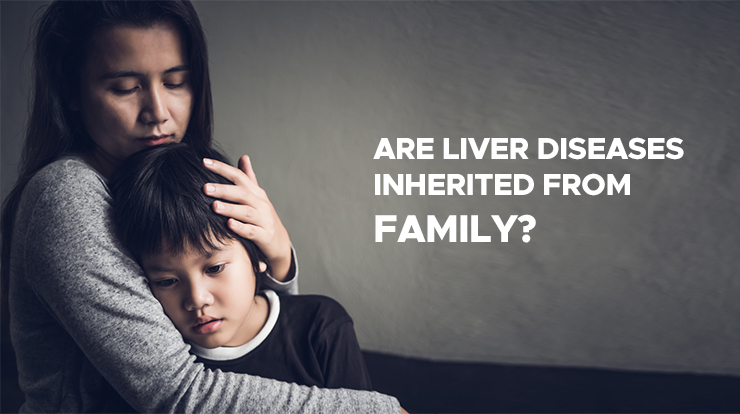
Liver diseases are a matter of concern for various healthcare organizations, including the WHO (World Health Organization.) In recent times, the prevalence of the liver disease has increased due to the changing sedentary lifestyle of youngsters and increased consumption of alcohol.
Liver diseases account for over 20 lakh deaths globally, where 4 lakh deaths are from India. At the India Liver Health Summit 2022, organized by Integrated Health & Wellbeing (IHW) Council, it came to the notice that 1 in 3 people in India is suffering from Fatty Liver.
The liver disease statistics in India are enough to hint at the severity of the disease.
Along with the change in lifestyle, genetics and heredity also play a vital role in passing the liver diseases. However, not every liver disease is genetically transferred, and the diseases are very rare, but the chances are still there.
Let’s learn about genetically transferred liver diseases and what causes them.
As the name suggests, genetically transferred – means a disease carried by an abnormal gene from one generation to another. An abnormal gene containing liver diseases can be inherited from one of the parents and can cause various substances to build up in your Liver, which results in liver damage at an early age. There most commonly transferred diseases are:
Hemochromatosis generally means taking up and storing more iron than the body needs, and liver hemochromatosis mean pathology in which iron accumulates in the Liver and other organs. It is one of the most commonly genetically inherited diseases. If one of the family members is suffering from Hemochromatosis, children are also at risk. The secondary form of this disease is expressed if the person is suffering from Thalassemia (the genetic disorder that causes anaemia.)
The predilection of this disease lies more towards the male. Because the female loses blood and iron in the form of measurement and is thus, unlikely to show the signs until after menopause, the disease can be identified through a genetic blood test.
Unlike the Hemochromatosis, Wilson’s disease is an autosomal recessive disorder characterized by the accumulation of Copper in the Liver and later in the brain, cornea, and kidney due to the failure of the gene ATP7B Cu translocase that regulates the levels of Copper in the Liver. It typically appears in the fifth and sixth decade.
The diagnosis of the disease is made through the serum ceruloplasmin concentration test.
In this disease, the Liver lacks or has lower levels of alpha-1 antitrypsin (an enzyme that protects the body’s tissues from being damaged by infection-fighting agents released by its immune system). The people suffering from alpha-1 antitrypsin deficiency show an accumulation of alpha-1 antitrypsin in the Liver instead of flowing in the bloodstream and reaching the lungs. Since alpha-1 antitrypsin protects the lungs, they can be damaged, resulting in life-threatening conditions known as Emphysema.
A hematologist can identify alpha-1 antitrypsin deficiency through physical signs like barrel-shaped chest and respiratory problems. A blood test can also be done to confirm the diagnosis.
Genetically transferred liver infections happen without any underlying or systemic cause. Some present themselves at an early age, and some are seen in the later decades of life. However, there are some ways to limit the spread and severity of the disease.
Yes, liver diseases are transferred genetically and are inherited from family, but the chances are rare. Liver diseases like Hemochromatosis, Alpha-1 antitrypsin deficiency, and Wilson’s diseases are life-threatening conditions, but early diagnosis and treatment can limit the damage.
At AILBS, Dr. Vivek Vij is best Liver Transplant Surgeon in india and his team help patients with early detection and treatment so that genetically affected patients can be treated well under expert care. With years of experience and has best Liver Transplant Success Rate in India, he gives the best possible care with an excellent prognosis. Get in touch with our doctors today.


